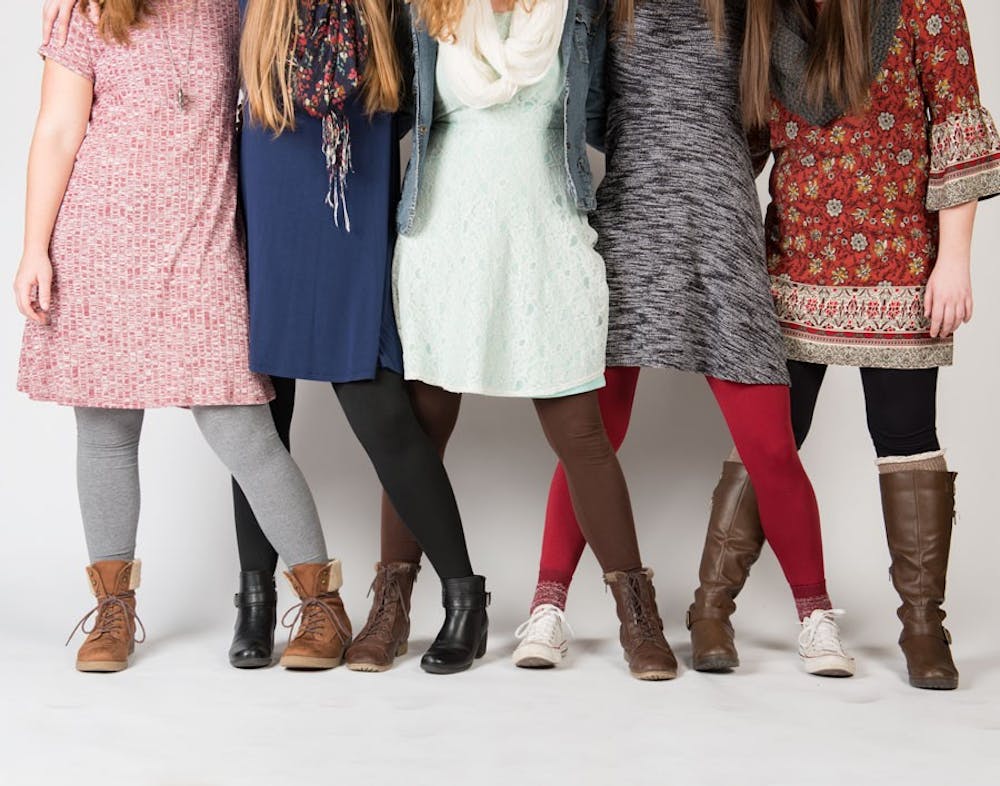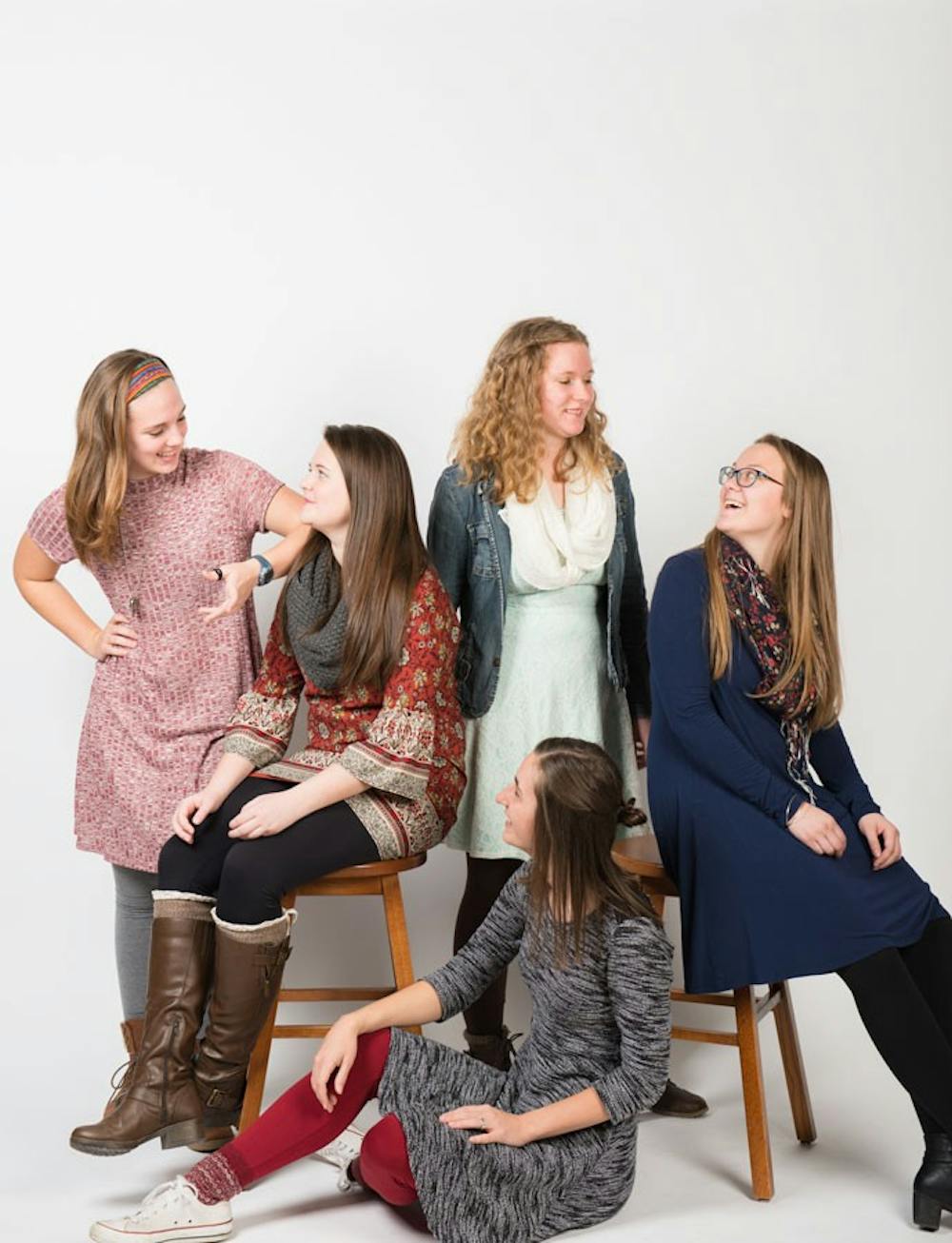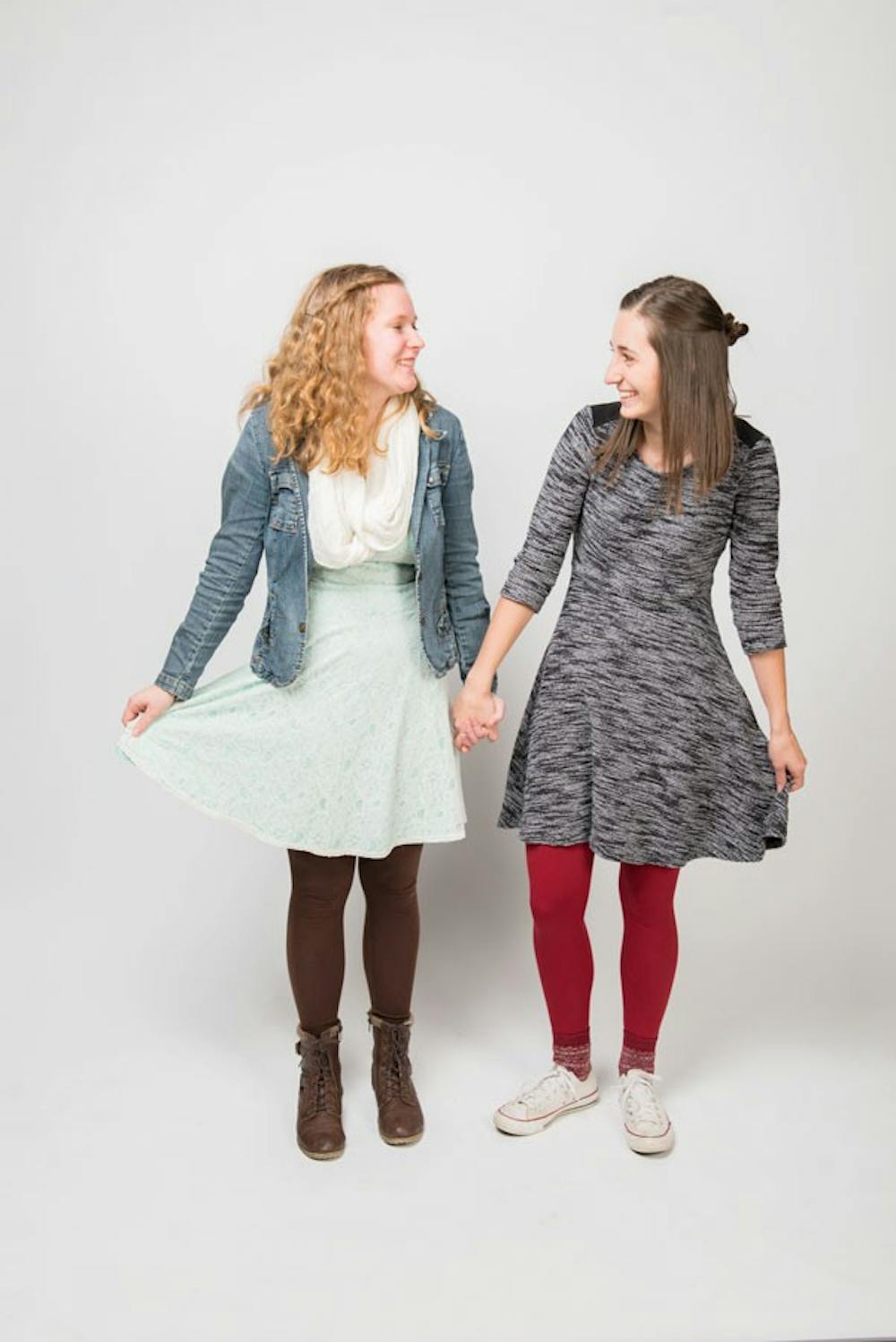By Cassidy Grom | Echo
On a mid-November day in Upland it was 30 degrees Fahrenheit.

That was enough for students to dust off winter jackets and start eyeing their wool socks. But freshman Madisyn Williams briskly walked to the cafeteria, her pale pink dress swishing near her bare knees.
"It's kinda cold out," she said as she entered the haven of a warm building. It would be easy to write Williams off as one of the dozens of students who came to Indiana unprepared for harsh winters. After all, she comes from Las Vegas, where on this particular day, it was a balmy 73 degrees. But Williams had another reason for her attire-she was practicing for the frigid December, when she would wear a dress every single day.
Williams, along with an estimated 4,600 women around the world, is participating in Dressember, a movement that encourages women to use fashion to advocate against human trafficking.
Williams' choice to dress up when most are choosing to bundle up flies in the face of social norms. According to a study by City Data, throughout the year about 27 percent of women never wear a skirt or dress and another 29 percent wear one less than weekly.
Sticking out, according to Williams, is the whole point. This may be her first Dressember in Indiana, but she has participated for the past two winters. Her first year, she focused on simply raising awareness. People would compliment her dress, and Williams would explain why she was wearing it.
The symbolism runs deep: by wearing a dress, Williams is freely choosing traditionally feminine attire. However, women in sex trafficking may regularly be forced to wear clothing that distorts and over-sexualizes femininity.
The second year, Williams tried something different. She wore a dress every day of the year; then, in December, she wore the same dress all month.
"I wore a dress for over half the time that I was (at my new high school)," she said, "So that was kind of the legacy I left. I was the girl who wore the dress."
That year, Williams asked others to donate money to A21 and International Justice Mission, both of which are non-profit organizations that specialize in protection against and prevention of human trafficking. She raised about $700.
A cause close to home
This year, Williams' mission continues, and the issue is as close to home as ever. The National Human Trafficking Hotline in Indiana had 66 human trafficking cases reported so far in 2016. According to Williams, Indianapolis is a hotspot for human trafficking, especially during large sporting events. In 2013, online advertisements for sex-trafficked women tripled during March Madness, according to a study by the University of Louisville.
The problem continues throughout the year. In October, Fox 59 reported: "Indianapolis Metropolitan police took in 12 women while raiding six massage parlors . . . in connection with an investigation into human trafficking."

In November, Ciera Beauchamp, a court-appointed guardian for a 17-year-old girl, was arrested in Indianapolis for posting 29 different ads of the girl's body. The pictures were on sites known for advertising prostitution. The girl was required to give the money she earned from forced sexual acts over to Beauchamp to help pay for rent and bills. The girl contracted a sexually transmitted disease in the process, according to the Indianapolis Star.
According to the Polaris Project, Indiana resides in the strictest category when it comes to sex trafficking laws. Western Michigan University law professor Stevie Swanson said Indiana law enforcement officers receive human trafficking training. Indiana also offers a civil course of action for trafficking victims. This means victims can present a series of facts that would be sufficient to punish their oppressors.
However, Indiana has a long way to go. According to Swanson, Indiana law has a loophole: Romeo pimps. These traffickers are close in age to their victims. They lure the victims into a false dating relationship, which often involves drugs. But certain criteria would exempt the Romeo pimp from punishment. (For a more thorough explanation, visit the Cooley Law School blog.)
Swanson explained another negative aspect of Indiana law: "People could be convicted of prostitution while being sold for commercial sex acts against their will, escape to freedom and still be saddled with a criminal record for a prostitution offense."
For Williams, it is stories like these that drive her to make a difference. "(There are) more slaves now than any other time in history," she said. "It's a continuously growing industry."
A dress a day
Williams estimates that she has about 30 dresses but only three with long sleeves. She pairs her dresses with cardigans and scarves to make them more versatile for cold weather.

But it wasn't until her first Dressember that Williams began to think about how those dresses were produced.
"That was something that I (hadn't) really ever thought about," she said. "I mean, I would read the 'Made in China' label. But I just kind of assumed (the dress makers) were all paid decent wages, they enjoyed their job (and) it was a nine to five type of thing. Then when I learned that wasn't true, I didn't want (to be) a part of that."
Now, Williams purchases almost all her clothes fair-trade. It costs a little more-the pink shift dress she was wearing cost $45-but for Williams it was worth it. Instead of a 'Made in China' label, the woman who made Williams' pink dress signed the tag.
Some participants do not purchase fair-trade clothing but plan to shop at thrift stores instead of buying new dresses. Williams, along with some of the 30 Dressember participants from Taylor, recently created a common rack of dresses to exchange among themselves.





